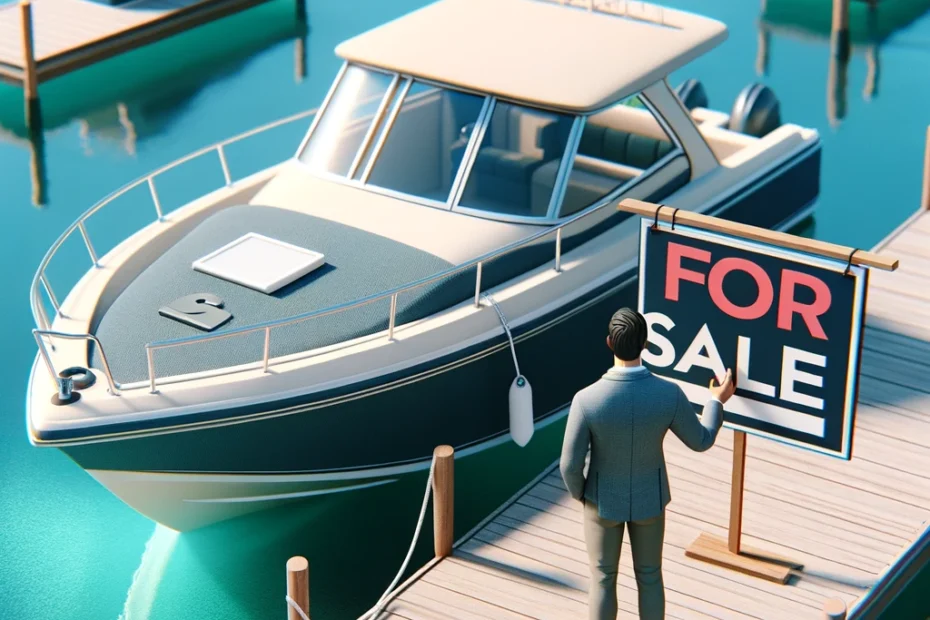Based on the HIN number, a potential buyer can see if a Boat has been reported as stolen (but not recovered), or has been reported as a salvaged or abandoned boat. A boat HIN lookup also includes valuable information such as pollution incidents and accidents. This helps those in the market for a used Boat to determine if they are getting a great boat or a lemon.
Buy Boat Title History Reports For $20.00 At boat-alert.com So You Can Check Your Watercraft, Vessel, Or Boat-fax Before You Buy A Used Boat To Avoid Hidden Problems. Securing the right boat begins with a deep understanding of its past.

A comprehensive Boat HIN Lookup includes:
- Accident Checks within the USA
- Incidents of Pollution within the USA
- Verification of Theft within the USA and Internationally
- Salvage and Total Loss records within the USA
- Information on Boats Imported through US Customs
- NMVTIS Check across more than 9000 Insurance Companies
- Notifications of Boat Recalls
- Details on the Year and Month of Manufacture
- Records of Auctioned Vessels
- Instances of Abandonment or Misappropriation
- Validation of Manufacturer Data
- Identification of the Model Name, whether Exact or Similar
- Titles Branded by Insurance Companies
- Dedicated and Fast Customer Support via Email
- Validation of HIN
- Registration Information in the USA if available
- Access to Certain Lien Databases
- Information on Claims and State-Issued HINs
- NMVTIS Searches of Salvage Yards & Auctions
- Comprehensive HIN Decoder
- Boat Value Estimation Tool
- History of Previous Boat Names
- Numbers Documenting USA Registration
- Verification of Official Numbers
- Registration Details from Canada (Federal)
- Licensing Information from Canadian PCL (Provincial)
- Canadian Theft Database Access
- A Printable PDF Report & a 60-day Link for Sharing
Carfax for Boats: Navigating the Waters of Pre-Owned Boat Purchasing
Purchasing a pre-owned boat can be an exciting venture, but it’s fraught with potential pitfalls. Just as Carfax reports have become an indispensable tool for car buyers, similar resources have become essential for those looking to invest in a boat. Understanding the history of a vessel before purchasing can save a buyer from unforeseen complications and expenses. This comprehensive guide will delve into the essentials of a boat VIN lookup, the importance of obtaining a boat history report, and deciphering the hull identification number (HIN) to ensure you make a well-informed decision on your next aquatic investment.
Boat VIN Lookup: Your First Step Towards a Secure Purchase
The concept of a Vehicle Identification Number (VIN) for boats, more accurately referred to as the Hull Identification Number (HIN), is akin to the VIN used for automobiles. This unique identifier is crucial for prospective boat owners. A boat VIN lookup is the initial step in uncovering the history of a vessel. Through various online platforms and services, buyers can input the HIN to access detailed reports that highlight any past issues, such as accidents, repairs, or even if the boat was previously reported stolen. This preliminary check is a cornerstone in the process of evaluating the condition and legitimacy of a pre-owned boat, equipping buyers with the knowledge needed to proceed with confidence.
Boat History Report: A Deep Dive into the Vessel’s Past
A boat history report goes beyond the initial identification offered by a VIN lookup. It provides a comprehensive overview of the boat’s history, including ownership changes, accident history, and any significant repairs or alterations. These reports can also reveal if the boat has ever been subject to recalls or if it has a clean title. In some cases, the report might include information about the boat’s use, such as whether it was previously used for rental or commercial purposes, which could affect its condition and value.
Obtaining a boat history report is akin to conducting a thorough background check on a potential investment. It’s an essential step for buyers who want to ensure they’re not inheriting unresolved issues or liabilities. Services that provide these reports use the HIN to gather information from various databases, ensuring that buyers have access to the most comprehensive and up-to-date information available.
Hull Identification Number: Decoding the Boat’s DNA
The Hull Identification Number (HIN) is not just a random string of characters. It’s a coded description that contains valuable information about the boat. Introduced in 1972, the HIN helps to identify the boat’s manufacturer, its serial number, and the month and year of production. This 12-character identifier is usually found on the starboard side of the transom or, on newer vessels, on the outer side of the hull’s stern. Decoding the HIN can provide buyers with crucial information about the boat, such as its age and where it was built, which can influence the purchasing decision.
Understanding how to read the HIN is beneficial for potential buyers. The first three characters represent the Manufacturer Identification Code (MIC), indicating who built the boat. The next five characters are the Serial Number assigned by the manufacturer, followed by a four-character date code. The date code reveals the month and year the boat was built and the model year. This information can be particularly useful when verifying the information provided by the seller or when comparing the boat to similar models and years.
Conclusion
In the world of pre-owned boat purchasing, knowledge is power. The tools and resources available for conducting a boat VIN lookup, obtaining a comprehensive boat history report, and understanding the significance of the hull identification number are invaluable for prospective buyers. By leveraging these tools, individuals can navigate the complexities of buying a pre-owned boat with greater confidence and security.
The importance of due diligence in this process cannot be overstated. Investing in a pre-owned boat involves not just financial considerations but also safety concerns. A thorough investigation into a boat’s past can uncover hidden issues that might not be immediately apparent, ensuring that your aquatic adventures are both enjoyable and safe. Whether you’re a seasoned sailor or a first-time buyer, the path to a successful boat purchase is paved with informed decisions.
lly a clean title. A clean title for a boat doesn’t mean much as there are only 5 states that have adopted UCOTVA. All other states only issue clean titles for boats, even if there is nothing left of the boat to title!”
FAQ
What is “Carfax for Boats”? What will it do and how will it help boat owners? “The recent Uniform Certificate of Title for Vessels Act (UCOTVA) that was dubbed the “Carfax for Boats Law” is a law that requires hull-damaged vessels to be branded as such on a title. This is one step in the right direction towards creating greater transparency in the marine industry. It is very much a common misconception by both boat owners and boat sellers (dealers/brokers) that a clean title for a boat means it’s actua
Why and how was the Boat History Report involved with the UCOTVA? “Consumer safety is critical to the boating industry and Boat History Report (BHR) felt that there was no reason that the same laws put in place to protect car buyers shouldn’t be in place to protect boat buyers. BHR was able to provide examples of boats being sold to unsuspecting buyers that have undisclosed negative histories. We were also able to provide stats on how many currently registered boats have hull damaged histories that, under the new law, will be disclosed in the future.”
Are there locations that are more problematic than others for boat owners? “Yes! For example, in Florida, 1 in 29 actively (currently) registered boats has some sort of negative event in its history. In Miami Dade County, that number is 1 in 12. In Orlando, that number is 1 in 34. South Florida in general is higher than the state average with 1 in 20 in Palm Beach County, and 1 in 15 in the Keys.”
Similar to shopping for a used vehicle, a used boat is often a more affordable and practical option. But, like used vehicles, some used boats have a less-than-favorable history. A boat’s history could include incidences of theft, accident, damage, flooding, fire, hurricanes… any event that could lead to issues with safety or longevity or could jeopardize the integrity of the boat.
Recently in Florida, the “Carfax for Boats” law was passed and will go into effect in July of 2023. This law is officially called the Uniform Certificate of Title for Vessels Act (UCOTVA). The law gives protection for consumers interested in purchasing a boat. The UCOTVA (not just in Florida) protects consumers from buying boats with previous damage, offers greater lending security, and provides clear ownership records, ultimately helping consumers make more informed decisions when purchasing used boats.



